Lab Testing
What is causing
Your Symptoms?
Lab testing is an important step in reclaiming your health.
Dr. Goldman’s extensive training in functional medicine allows her to determine what lab tests are most likely to uncover the hidden culprits of your symptoms and, in turn, read the results and recommend treatment from a holistic perspective.
Fundamental Five
Fundamental Seven
Fundamental Toxin 3
Fundamental Basic
Pyroluria Detection
OmegaCheck
Fundamental 5
The Fundamental 5 Panel Includes: CMP 14, GGT, CRP,hs, ESR, Insulin, HgA1C, Homocysteine, Vitamin D 25 OH, TSH, Free T3, Free T4, Total T3, Reverse T3, TPO ab, Thyroglobulin ab, Copper Serum, Zinc Plasma, Ceruloplasmin, B12/Folate, Iron & TIBC, CBC w/ Diff, Ferritin, LDL-P, Basic Lipids
Cost: $449 | Click to Order Test
HIDDEN - Do Not Delete
Detailed Test Description
The Fundamental 5 Panel Includes:
CMP 14, GGT, CRP,hs, ESR, Insulin, HgA1C, Homocysteine, Vitamin D 25 OH, TSH, Free T3, Free T4, Total T3, Reverse T3, TPO ab, Thyroglobulin ab, Copper Serum, Zinc Plasma, Ceruloplasmin, B12/Folate, Iron & TIBC, CBC w/ Diff, Ferritin, LDL-P, Basic Lipids
The Comprehensive Metabolic Panel (CMP14) is used in the evaluation of organ function and checks for conditions such as diabetes, liver disease, and kidney disease. The CMP may also be ordered to monitor conditions, such as hypertension, and to monitor patients taking medications for any kidney- or liver-related side effects. If a doctor is interested in following two or more individual CMP components, they may order the entire CMP because it offers more information and can give a more thorough assessment.
GGT is used to determine why a patient would have elevated levels of alkaline phosphatase or also known as ALP. This test would be recommended for any patients with disease associated with the bile duct, and also for patients who have liver or bone disease.
C-Reactive Protein, hs: Increases when there’s inflammation in your body. This test can also be used to evaluate your risk of developing coronary artery disease.
Sedimentation Rate, Westergren (ESR): The Sedimentation Rate test is used to evaluate the nonspecific activity of infections, inflammatory states, autoimmune disorders, and plasma cell dyscrasias.
Insulin: This test is used to diagnose an insulin-producing tumor and verify that the removal of the tumor has been successful. It can also be used to diagnose hypoglycemia, insulin resistance, and can be paired with a C-peptides test to determine levels of insulin being produced in the body, and levels of insulin coming from an outside source such as insulin injections.
Hemoglobin A1c: Diabetes and prediabetes in adults can be diagnosed and screened for using this test. When glucose attaches to hemoglobin, hemoglobin A1c is then created. When glucose levels are elevated, more glycated hemoglobin is created.
Homocysteine: This test is ordered for a variety of clinical purposes including heart conditions, and vitamin b12 or folate deficiency. Testing homocysteine can be effective in identifying abnormal levels of B12 and folate before symptoms are present.
Vitamin D-25 Hydroxy: Vitamin D-25 Hydroxy is ordered when an individual has low calcium and/or symptoms of vitamin D deficiency. This can appear as bone weakness/softness, or fractures in adults, or as rickets (bone malformation) in children.
The vitamin D test is for individuals at high risk of deficiency. It is used to monitor diseases that interfere with fat absorption. These diseases include cystic fibrosis or Crohn disease. This test also monitors the effectiveness of Vitamin D-25 Hydroxy, calcium, magnesium or phosphorus supplementation.
Individuals at risk of vitamin D deficiency include: older adults, individuals who have limited exposure to sunlight, individuals who are obese, or who have fat malabsorption.
Low levels of D-25 hydroxy are one of the earliest changes that show in individuals with early kidney failure. People with kidney disease also show low levels.
High levels of D-25 hydroxy show due to diseases that can make Vitamin D-25 Hydroxy outside of the kidneys. The two primary diseases related to this are sarcoidosis or certain lymphomas.
Long term high levels of vitamin D can eventually lead to the damage of certain organs such as the kidneys and blood vessels via calcification. If magnesium levels are low, a physician may supplement both magnesium and calcium in order to eliminate a low calcium level that is resistant to Vitamin D-25 Hydroxy.
TSH (thyroid stimulating hormone) is the most common test used to evaluate thyroid function and symptoms related to a thyroid disorder such as hyperthyroidism, or hypothyroidism. Produced by the pituitary gland, the primary role of TSH in the body is to stabilize amounts of T4 (thyroxine) and T3 (triiodothyronine) in the blood. This process controls how much energy the body burns.
Free T3 (free triiodothyronine) is used to evaluate thyroid function and also in the assessment of abnormal binding protein disorders. Measurement of Free T3 is valuable in confirming the diagnosis of hyperthyroidism, when an elevated free or total thyroxine level is found. Abnormal total and free triiodothyronine concentrations may appear in T3 toxicosis, in the presence of normal thyroxine levels. The levels of free T3 are unaffected by carrier protein variation.
Free (Thyroxine) T4 can sometimes be indicated when binding globulin (TBG) problems are perceived, or when conventional test results appear inconsistent with clinical observations. It is common in subjects with high thyroxine-binding globulin hormone binding who are euthyroid (ie, free thyroxine should be normal in non-thyroidal diseases). It should appear normal in familial dysalbuminemic hyperthyroxinemia.
T3 Total (Triiodothyronine) is needed in patients who have clinical evidence for hyperthyroidism, in whom the usual thyroid profile result is reported as normal or borderline. The T3 Total test is recommended for patients with supraventricular tachycardia, for patients with fatigue and weight loss not otherwise explained, or for patients with proximal myopathy who also have T4 levels that are not elevated.
Reverse T3 is a biologically inactive form of T3. When T4 is converted to T3 in the body, a certain percentage of the T3 is in the form of RT3. When the body is under stress, thyroid hormone levels may be outside of normal ranges even though there is no thyroid disease present. RT3 may be elevated in non-thyroidal conditions, particularly the stress of illness.
Thyroid Peroxidase (TPO) Ab is used in the differential diagnosis of hypothyroidism and thyroiditis.
Thyroglobulin Ab is primarily used to detect and confirm autoimmune thyroiditis, Hashimoto thyroiditis.
Copper Serum is a highly reliable blood test that directly relates to brain chemistry. Elevated copper levels can alter the brains function, specifically the activity of dopamine and norepinephrine. Copper plays a large role in the metabolism of dopamine and the synthesis of norepinephrine. In turn, elevated copper levels lower dopamine levels and raise levels of norepinephrine. Imbalances in these essential brain chemicals have been related to paranoid schizophrenia, bi-polar disorder, postpartum depression, ADD, ADHD, autism, and violent aggressive behavior. Copper serum levels can single handedly be the root cause of an individual condition, but elevated copper serum levels are also known to cause zinc levels to deplete and oxidative stress to rise.
Zinc plasma is a measurement that is closely correlated to biochemistry, and more specifically brain chemistry. Functional levels of zinc, along with a copper/zinc ratio, are frequently performed as markers for specific neuro activity.
Ceruloplasmin is used in the evaluation of oxidative stress. When paired with copper, it is used to calculate free copper. When paired with other blood or urine copper tests, ceruloplasmin is used to help diagnose Wilson’s disease. This is due to a decreased ability to incorporate copper into apoceruloplasmin. In turn, free copper levels in plasma and tissue are greatly increased, especially in the liver and brain.
Vitamin B12: Detect B12 deficiency as in pernicious anemia; diagnose folic acid deficiency; evaluate hypersegmentation of granulocyte nuclei; follow up MCV >100; diagnose macrocytic anemia; diagnose megaloblastic anemia; evaluate alcoholism, prenatal care; evaluate malabsorption, neurological disorders, or the elevation of B12 as seen in liver cell damage or myeloid leukemia.
Folate: A vitamin that unfortunately cannot be produced by the body. The only way to gain this vitamin is through food. Folate is essential for RBC formation and also for the repair of tissues and cells.
Folate (Folic Acid) test use:
-Detect folate deficiency
-Monitor therapy with folate
-Evaluate megaloblastic and macrocytic anemia
-Evaluate alcoholic patients
Testing the folic acid level is primarily used in the diagnosis of megaloblastic anemia.
Iron & TIBC is used to aid in the evaluation of a number of conditions involved with red cell production and destruction, iron transport, or iron metabolism
The Complete Blood Count (CBC) is often used as a broad screening test to determine an individual’s general health status. It can be used to:
Screen for a wide range of conditions and diseases
Help diagnose various conditions, such as anemia, infection, inflammation, bleeding disorder or leukemia, to name just a few
Monitor the condition and/or effectiveness of treatment after a diagnosis is established
Monitor treatment that is known to affect blood cells, such as chemotherapy or radiation therapy
Ferritin: The ferritin test is used to evaluate an individual’s iron levels in the body. Ferritin is often paired with an iron test and also a TIBC test. Ferritin levels correlate with and are useful in the evaluation of total body storage iron.
LDL-P: NMR LDL-P is a management tool used in appropriate high-risk patients (type 2 diabetes mellitus, metabolic syndrome, CVD risk equivalent, statin-treated patients) to adjudicate response to treatment and guide adjustment in therapy. It is used in conjunction with other lipid measurements and clinical evaluation to aid in the management of lipoprotein disorders associated with cardiovascular disease.
Basic Lipid Panel: This test measures Cholesterol, total; high-density lipoprotein (HDL) cholesterol; low-density lipoprotein (LDL) cholesterol (calculation); triglycerides; very low-density lipoprotein (VLDL) cholesterol (calculation).
**Note: All laboratory testing requires an authorizing physician. DHA Laboratory offers a patient direct program that partners you with an authorizing physician. If you have any additional questions regarding the availability of testing, please contact our laboratory by telephone or email.**
Fundamental 7
The Fundamental 7 Panel Includes: CMP 14, GGT, CRP,hs, ESR, Insulin, HgA1C, Homocysteine, TSH, Free T3, Free T4, Total T3, Reverse T3, TPO ab, Thyroglobulin ab, Copper Serum, Zinc Plasma, Ceruloplasmin, B12/Folate, Iron & TIBC, CBC w/ Diff, LDL-P, Mercury, Cadmium, Lead, Arsenic, Basic Lipid Panel, Celiac Ab tTF TIgA w/Rflx, ANA Panel w/Rflx, +Reflex, Ferritin, Immunoglobulins IgA, IgE, IgG, Ig, Vitamin D 25 OH, Basic Lipids
Cost: $699 | Click to Order Test
HIDDEN - Do Not Delete
Detailed Test Description
The Fundamental 7 Panel Includes: CMP 14, GGT, CRP,hs, ESR, Insulin, HgA1C, Homocysteine, TSH, Free T3, Free T4, Total T3, Reverse T3, TPO ab, Thyroglobulin ab, Copper Serum, Zinc Plasma, Ceruloplasmin, B12/Folate, Iron & TIBC, CBC w/ Diff, LDL-P, Mercury, Cadmium, Lead, Arsenic, Basic Lipid Panel, Celiac Ab tTF TIgA w/Rflx, ANA Panel w/Rflx, +Reflex, Ferritin, Immunoglobulins IgA, IgE, IgG, Ig, Vitamin D 25 OH, Basic Lipids
The Comprehensive Metabolic Panel (CMP14) is used in the evaluation of organ function and checks for conditions such as diabetes, liver disease, and kidney disease. The CMP may also be ordered to monitor conditions, such as hypertension, and to monitor patients taking medications for any kidney- or liver-related side effects. If a doctor is interested in following two or more individual CMP components, they may order the entire CMP because it offers more information and can give a more thorough assessment.
GGT is used to determine why a patient would have elevated levels of alkaline phosphatase or also known as ALP. This test would be recommended for any patients with disease associated with the bile duct, and also for patients who have liver or bone disease.
C-Reactive Protein, hs: Increases when there’s inflammation in your body. This test can also be used to evaluate your risk of developing coronary artery disease.
Sedimentation Rate, Westergren (ESR): The Sedimentation Rate test is used to evaluate the nonspecific activity of infections, inflammatory states, autoimmune disorders, and plasma cell dyscrasias.
Insulin: This test is used to diagnose an insulin-producing tumor and verify that the removal of the tumor has been successful. It can also be used to diagnose hypoglycemia, insulin resistance, and can be paired with a C-peptides test to determine levels of insulin being produced in the body, and levels of insulin coming from an outside source such as insulin injections.
Hemoglobin A1c: Diabetes and prediabetes in adults can be diagnosed and screened for using this test. When glucose attaches to hemoglobin, hemoglobin A1c is then created. When glucose levels are elevated, more glycated hemoglobin is created.
Homocysteine: This test is ordered for a variety of clinical purposes including heart conditions, and vitamin b12 or folate deficiency. Testing homocysteine can be effective in identifying abnormal levels of B12 and folate before symptoms are present.
TSH (thyroid stimulating hormone) is the most common test used to evaluate thyroid function and symptoms related to a thyroid disorder such as hyperthyroidism, or hypothyroidism. Produced by the pituitary gland, the primary role of TSH in the body is to stabilize amounts of T4 (thyroxine) and T3 (triiodothyronine) in the blood. This process controls how much energy the body burns.
Free T3 (free triiodothyronine) is used to evaluate thyroid function and also in the assessment of abnormal binding protein disorders. Measurement of Free T3 is valuable in confirming the diagnosis of hyperthyroidism, when an elevated free or total thyroxine level is found. Abnormal total and free triiodothyronine concentrations may appear in T3 toxicosis, in the presence of normal thyroxine levels. The levels of free T3 are unaffected by carrier protein variation.
Free (Thyroxine) T4 can sometimes be indicated when binding globulin (TBG) problems are perceived, or when conventional test results appear inconsistent with clinical observations. It is common in subjects with high thyroxine-binding globulin hormone binding who are euthyroid (ie, free thyroxine should be normal in non-thyroidal diseases). It should appear normal in familial dysalbuminemic hyperthyroxinemia.
T3 Total (Triiodothyronine) is needed in patients who have clinical evidence for hyperthyroidism, in whom the usual thyroid profile result is reported as normal or borderline. The T3 Total test is recommended for patients with supraventricular tachycardia, for patients with fatigue and weight loss not otherwise explained, or for patients with proximal myopathy who also have T4 levels that are not elevated.
Reverse T3 is a biologically inactive form of T3. When T4 is converted to T3 in the body, a certain percentage of the T3 is in the form of RT3. When the body is under stress, thyroid hormone levels may be outside of normal ranges even though there is no thyroid disease present. RT3 may be elevated in non-thyroidal conditions, particularly the stress of illness.
Thyroid Peroxidase (TPO) Ab is used in the differential diagnosis of hypothyroidism and thyroiditis.
Thyroglobulin Ab is primarily used to detect and confirm autoimmune thyroiditis, Hashimoto thyroiditis.
Copper Serum is a highly reliable blood test that directly relates to brain chemistry. Elevated copper levels can alter the brains function, specifically the activity of dopamine and norepinephrine. Copper plays a large role in the metabolism of dopamine and the synthesis of norepinephrine. In turn, elevated copper levels lower dopamine levels and raise levels of norepinephrine. Imbalances in these essential brain chemicals have been related to paranoid schizophrenia, bi-polar disorder, postpartum depression, ADD, ADHD, autism, and violent aggressive behavior. Copper serum levels can single handedly be the root cause of an individual condition, but elevated copper serum levels are also known to cause zinc levels to deplete and oxidative stress to rise.
Zinc plasma is a measurement that is closely correlated to biochemistry, and more specifically brain chemistry. Functional levels of zinc, along with a copper/zinc ratio, are frequently performed as markers for specific neuro activity.
Ceruloplasmin is used in the evaluation of oxidative stress. When paired with copper, it is used to calculate free copper. When paired with other blood or urine copper tests, ceruloplasmin is used to help diagnose Wilson’s disease. This is due to a decreased ability to incorporate copper into apoceruloplasmin. In turn, free copper levels in plasma and tissue are greatly increased, especially in the liver and brain.
Vitamin B12: Detect B12 deficiency as in pernicious anemia; diagnose folic acid deficiency; evaluate hypersegmentation of granulocyte nuclei; follow up MCV >100; diagnose macrocytic anemia; diagnose megaloblastic anemia; evaluate alcoholism, prenatal care; evaluate malabsorption, neurological disorders, or the elevation of B12 as seen in liver cell damage or myeloid leukemia
Iron & TIBC is used to aid in the evaluation of a number of conditions involved with red cell production and destruction, iron transport, or iron metabolism
The Complete Blood Count (CBC) is often used as a broad screening test to determine an individual’s general health status. It can be used to:
- Screen for a wide range of conditions and diseases
- Help diagnose various conditions, such as anemia, infection, inflammation, bleeding disorder or leukemia, to name just a few
- Monitor the condition and/or effectiveness of treatment after a diagnosis is established
- Monitor treatment that is known to affect blood cells, such as chemotherapy or radiation therapy
LDL-P: NMR LDL-P is a management tool used in appropriate high-risk patients (type 2 diabetes mellitus, metabolic syndrome, CVD risk equivalent, statin-treated patients) to adjudicate response to treatment and guide adjustment in therapy. It is used in conjunction with other lipid measurements and clinical evaluation to aid in the management of lipoprotein disorders associated with cardiovascular disease.
The Mercury, Blood: This test is used to identify an abnormally high amount of mercury in the blood. It can also be used to evaluate individuals who may have been exposed to mercury in the workplace. Practitioners will use this test to determine whether a patient has been affected by acute exposure (short term) or chronic exposure (long term) to Mercury.
Cadmium: This test is used to monitor recent or acute exposure to cadmium.
Lead: This test is used to monitor the exposure to lead.
Arsenic: This test is used to monitor recent or acute exposure to arsenic.
Lipid Panel: Evaluate hyperlipidemia as an index to coronary artery disease
Celiac Ab tTF TIgA w/Rflx: Aid in the diagnosis of gluten-sensitive enteropathies
Ana Panel with Reflex: The ANA test is used to detect antibodies to nuclear antigens.
Ferritin: The ferritin test is used to evaluate an individual’s iron levels in the body. Ferritin is often paired with an iron test and also a TIBC test. Ferritin levels correlate with and are useful in the evaluation of total body storage iron.
Immunoglobulins IgA/E/G/M: This test measures the amount of antibodies called immunoglobulins in your blood. Your immune system makes antibodies to fight off bacteria, viruses, and other invaders that could harm your health. Your body makes several types of immunoglobulin antibodies: M, G, A, and E. They are called IgM, IgG, IgA, and IgE.
Vitamin D-25 Hydroxy: Vitamin D-25 Hydroxy is ordered when an individual has low calcium and/or symptoms of vitamin D deficiency. This can appear as bone weakness/softness, or fractures in adults, or as rickets (bone malformation) in children.
The vitamin D test is for individuals at high risk of deficiency. It is used to monitor diseases that interfere with fat absorption. These diseases include cystic fibrosis or Crohn disease. This test also monitors the effectiveness of Vitamin D-25 Hydroxy, calcium, magnesium or phosphorus supplementation.
Individuals at risk of vitamin D deficiency include: older adults, individuals who have limited exposure to sunlight, individuals who are obese, or who have fat malabsorption.
Low levels of D-25 hydroxy are one of the earliest changes that show in individuals with early kidney failure. People with kidney disease also show low levels.
High levels of D-25 hydroxy show due to diseases that can make Vitamin D-25 Hydroxy outside of the kidneys. The two primary diseases related to this are sarcoidosis or certain lymphomas.
Long term high levels of vitamin D can eventually lead to the damage of certain organs such as the kidneys and blood vessels via calcification. If magnesium levels are low, a physician may supplement both magnesium and calcium in order to eliminate a low calcium level that is resistant to Vitamin D-25 Hydroxy.
Basic Lipid Panel: This test measures Cholesterol, total; high-density lipoprotein (HDL) cholesterol; low-density lipoprotein (LDL) cholesterol (calculation); triglycerides; very low-density lipoprotein (VLDL) cholesterol (calculation).
**Note: All laboratory testing requires an authorizing physician. DHA Laboratory offers a patient direct program that partners you with an authorizing physician. If you have any additional questions regarding the availability of testing, please contact our laboratory by telephone or email.**
Fundamental Toxin 3
The Fundamental Toxin 3 Panel Includes: GPL – Organic Acid Test (OAT) (74), GPL – TOX Profile, GPL – MycoTOX Profile
Cost: $1,099 | Click to Order Test
HIDDEN - Do Not Delete
Detailed Test Description
The Fundamental Toxin 3 Panel Includes: GPL – Organic Acid Test (OAT) (74), GPL – TOX Profile, GPL – MycoTOX Profile
The Organic Acids Test (OAT) provides a comprehensive analysis of intestinal yeast and bacteria. Unusually high levels of these microorganisms often cause or increase the severity of behavior disorders. These disorders include, but are not limited to: hyperactivity, movement disorders, and immune function. An individual with neurological disorders or chronic illness will often excrete several abnormal organic acids in urine. This may be due to oral antibiotics, immune deficiencies, infections, high sugar diets, or genetics.
The Organic Acids Test includes markers for mineral and vitamin levels, oxidative stress, and neurotransmitter levels. It also includes markers for oxalates (highly associated with a variety of chronic illnesses).
The primary forms of treatment for any abnormalities found in the Organic Acids Test include supplements (vitamins and antioxidants), or a change in diet. Patients who have gone through treatment have noted remarkable improvement in symptoms including: increased energy, increased concentration, decreased fatigue, regular bowel function, improved verbal skills, a decrease in hyperactivity, and decreased abdominal pain.
Practitioners who are performing followup testing to the OAT will order the Microbial Organic Acids Test (MOAT). This is due to the MOAT‘s ability to asses treatment, and monitor or identify specific abnormalities, or certain microbial imbalances.
The OAT test is an at home urine collection kit and is available in most states, and for international purchase. Price varies for international OAT kits – please contact our laboratory for more information on international kits.
The GPL – Tox Profile is a toxic non-metal chemical profile that screens for the presence of 173 different toxic chemicals including organophosphate pesticides, phthalates, benzene, xylene, vinyl chloride, pyrethroid insecticides, acrylamide, perchlorate, diphenyl phosphate, ethylene oxide, acrylonitrile, and more. This profile also includes Tiglylglycine (TG), a marker for mitochondrial disorders resulting from mutations of mitochondrial DNA. These mutations can be caused by exposure to toxic chemicals, infections, inflammation, and nutritional deficiencies.
The MycoTox Profile screens for eleven different mycotoxins, from 40 species of mold, in one urine sample.
Mycotoxins are some of the most prevalent toxins in the environment. Mycotoxins are produced by fungi like mold, which can contaminate buildings and foods we eat. Most mycotoxin exposures are through food ingestion or airborne exposure.
There are many serious health conditions linked to mycotoxin exposure such as fever, pneumonia, heart disease, asthma, cancer, memory loss, vision loss, chronic fatigue, depression, ADHD, and anxiety. With the MycoTOX Profile, mycotoxin exposures can be identified and make effective treatment recommendations for detoxification.
**Note: All laboratory testing requires an authorizing physician. DHA Laboratory offers a patient direct program that partners you with an authorizing physician. If you have any additional questions regarding the availability of testing, please contact our laboratory by telephone or email.**
Fundamental Basic
The Fundamental Basic Panel Includes: CMP 14, GGT, CRP,hs, ESR, Insulin, HgA1C, Homocysteine, Vitamin D 25 OH, Basic Lipid Panel
Cost: $169 | Click to Order Test
HIDDEN - Do Not Delete
Detailed Test Description
The Fundamental Basic Panel Includes: CMP 14, GGT, CRP,hs, ESR, Insulin, HgA1C, Homocysteine, Vitamin D 25 OH, Basic Lipid Panel
The Comprehensive Metabolic Panel (CMP14) is used in the evaluation of organ function and checks for conditions such as diabetes, liver disease, and kidney disease. The CMP may also be ordered to monitor conditions, such as hypertension, and to monitor patients taking medications for any kidney- or liver-related side effects. If a doctor is interested in following two or more individual CMP components, they may order the entire CMP because it offers more information and can give a more thorough assessment.
GGT is used to determine why a patient would have elevated levels of alkaline phosphatase or also known as ALP. This test would be recommended for any patients with disease associated with the bile duct, and also for patients who have liver or bone disease.
C-Reactive Protein, hs: Increases when there’s inflammation in your body. This test can also be used to evaluate your risk of developing coronary artery disease.
Sedimentation Rate, Westergren (ESR): The Sedimentation Rate test is used to evaluate the nonspecific activity of infections, inflammatory states, autoimmune disorders, and plasma cell dyscrasias.
Insulin: This test is used to diagnose an insulin-producing tumor and verify that the removal of the tumor has been successful. It can also be used to diagnose hypoglycemia, insulin resistance, and can be paired with a C-peptides test to determine levels of insulin being produced in the body, and levels of insulin coming from an outside source such as insulin injections.
Hemoglobin A1c: Diabetes and prediabetes in adults can be diagnosed and screened for using this test. When glucose attaches to hemoglobin, hemoglobin A1c is then created. When glucose levels are elevated, more glycated hemoglobin is created.
Homocysteine: This test is ordered for a variety of clinical purposes including heart conditions, and vitamin b12 or folate deficiency. Testing homocysteine can be effective in identifying abnormal levels of B12 and folate before symptoms are present.
Vitamin D-25 Hydroxy: Vitamin D-25 Hydroxy is ordered when an individual has low calcium and/or symptoms of vitamin D deficiency. This can appear as bone weakness/softness, or fractures in adults, or as rickets (bone malformation) in children.
The vitamin D test is for individuals at high risk of deficiency. It is used to monitor diseases that interfere with fat absorption. These diseases include cystic fibrosis or Crohn disease. This test also monitors the effectiveness of Vitamin D-25 Hydroxy, calcium, magnesium or phosphorus supplementation.
Individuals at risk of vitamin D deficiency include: older adults, individuals who have limited exposure to sunlight, individuals who are obese, or who have fat malabsorption.
Low levels of D-25 hydroxy are one of the earliest changes that show in individuals with early kidney failure. People with kidney disease also show low levels.
High levels of D-25 hydroxy show due to diseases that can make Vitamin D-25 Hydroxy outside of the kidneys. The two primary diseases related to this are sarcoidosis or certain lymphomas.
Long term high levels of vitamin D can eventually lead to the damage of certain organs such as the kidneys and blood vessels via calcification. If magnesium levels are low, a physician may supplement both magnesium and calcium in order to eliminate a low calcium level that is resistant to Vitamin D-25 Hydroxy.
Basic Lipid Panel: This test measures Cholesterol, total; high-density lipoprotein (HDL) cholesterol; low-density lipoprotein (LDL) cholesterol (calculation); triglycerides; very low-density lipoprotein (VLDL) cholesterol (calculation).
**Note: All laboratory testing requires an authorizing physician. DHA Laboratory offers a patient direct program that partners you with an authorizing physician. If you have any additional questions regarding the availability of testing, please contact our laboratory by telephone or email.**
Pyroluria Detection
The Fundamental Pyrroles Includes: Pyroluria detection, urine Kryptopyrrole levels
Cost: $149 | Click to Order Test
HIDDEN - Do Not Delete
Detailed Test Description
Pyroluria is characterized by elevated urine Kryptopyrrole levels, which result in a dramatic deficiency of zinc and vitamin B6. A high Kryptopyrrole result is also known as pyroluria, pyrrole disorder, or elevated pyrroles. If you do not have a practitioner that will order this testing for you, you can order this test directly through our website.
Our laboratory will provide you with the most accurate Kryptopyrrole result on the market. We are the only laboratory in the U.S.A. that provides a corrected Kryptopyrrole result. Our corrected result accounts for the concentration or dilution of the urine specimen. For example, if the patient has consumed a large amount of water prior to collection, the pyrrole levels will be lower in the initial result. This is due to the fact that the specimen is diluted. DHA Laboratory performs a validated procedure that calculates the level of dilution. Our procedure allows us to compensate for dilution (or concentration) in the corrected result. This allows our patients to have an accurate pyrrole result regardless of the concentration of the urine specimen. Due to the calculation we perform, patients only need to collect a one-time urine collection.
Symptoms Relating to Pyroluria Include:
- Poor tolerance to physical / emotional stress
- Poor anger control
- Emotional mood swings
- Poor short-term memory
- Frequent infections
- Inability to tan
- Poor dream recall
- Abnormal fat distribution
- Sensitivity to light and sound
- Tactile sensitivities
Pyroluria is Frequently Identified in:
- Behavior disorders
- Autism
- Asperger’s
- ADHD
- ADD
- Depression
- Assaultive / Aggressive / Violent Behavior
- Schizophrenia
The Kryptopyrrole test kit is an at home urine collection kit. Our kit contains a stabilizing agent used to stop the deterioration of pyrroles, also known as HPL. The specimen must be frozen and shipped according to our directions. Specimen quality is extremely important for the Kryptopyrrole test. DHA Laboratory takes every measure necessary to ensure the integrity of each Kryptopyrrole specimen.
Treatment of Pyroluria: Treatment consists of a replacement of zinc and vitamin B6. Because treatment is metabolic rather than pharmacologic, it needs to be focused towards each patient’s individual requirements. Age, weight, symptoms, test results, along with several other factors are always taken into consideration when developing a treatment protocol. Both zinc and vitamin B6 supplementation needs to be directed by a trained physician. Too high of a supplement dosage can be toxic to the body, the wrong form will be ineffective, and certain competing minerals and supplements may have to be avoided.
What’s Included in Your Test Kit Price:
- Test kit instructions
- All collection materials
- Overnight Fed Ex return shipping label with shipping bag
- Running of the test
- Reporting of the results
- A final receipt for services rendered to submit for insurance reimbursement
Patient Preparation: Do not collect the first morning urine specimen. A second morning urine collection is preferred, but not required. Supplements containing vitamins or minerals should be stopped 12-24 hours prior to your urine collection. Antibiotics may cause an interfering substance and create a result that cannot be reported. However, do not go off any prescription medications unless advised by your ordering physician.
Shipping Instructions: Urine Kryptopyrrole specimens can be shipped to our laboratory on Monday, Tuesday or Wednesday. Please do not ship your Kryptopyrrole specimen on a Thursday, Friday or over the weekend.
**Note: All laboratory testing requires an authorizing physician. DHA Laboratory offers a patient direct program that partners you with an authorizing physician. If you have any additional questions regarding the availability of testing, please contact our laboratory by telephone or email.**
Fundamental OmegaCheck
The Fundamental OmegaCheck Includes: omega-3 and omega-6 fatty acids
Cost: $149 | Click to Order Test
HIDDEN - Do Not Delete
Detailed Test Description
The OmegaCheck test can help measure the balance of fats in your diet. omega-3 and omega-6 fatty acids are two of the most important types of polyunsaturated facts. The most important omega-3s are commonly called EPA and DHA.
Omega-3s help brain function, including memory, and normal growth and development. They also can reduce inflammation. Our bodies don’t make enough omega-3s, so we must get them from the foods we eat, such as oily fish and plant oils.
The most common form of omega-6s is called arachidonic acid, or AA. You get most of the omega-6s from animal foods in your diet, such as meat and eggs. This test may be performed on individuals with hypercholesterolemia, hypertriglyceridemia, hypertension, and/or those at high metabolic or cardiovascular risk.
**Note: All laboratory testing requires an authorizing physician. DHA Laboratory offers a patient direct program that partners you with an authorizing physician. If you have any additional questions regarding the availability of testing, please contact our laboratory by telephone or email.**
Become a Member
Clear Path Wellness patients, get exclusive access to videos and articles that can guide you to optimal health and wellness.
What Our Patients Are Saying
Let's connect

Clear Path Wellness is Chicago-Area's Premier Functional Medicine & Holistic Psychiatry Practice
Arlington Heights, IL
Chicago Area
- Online Therapy
- Phone Therapy
- Telehealth
- Telemedicine
Phone & Fax
F: 847-418-8949
* Information and products listed on this website are not intended to treat, cure, prevent or diagnose any disease or condition and are provided for educational purposes only. It is not intended as a substitute for professional medical. Always consult your doctor with questions regarding your health and treatment.





